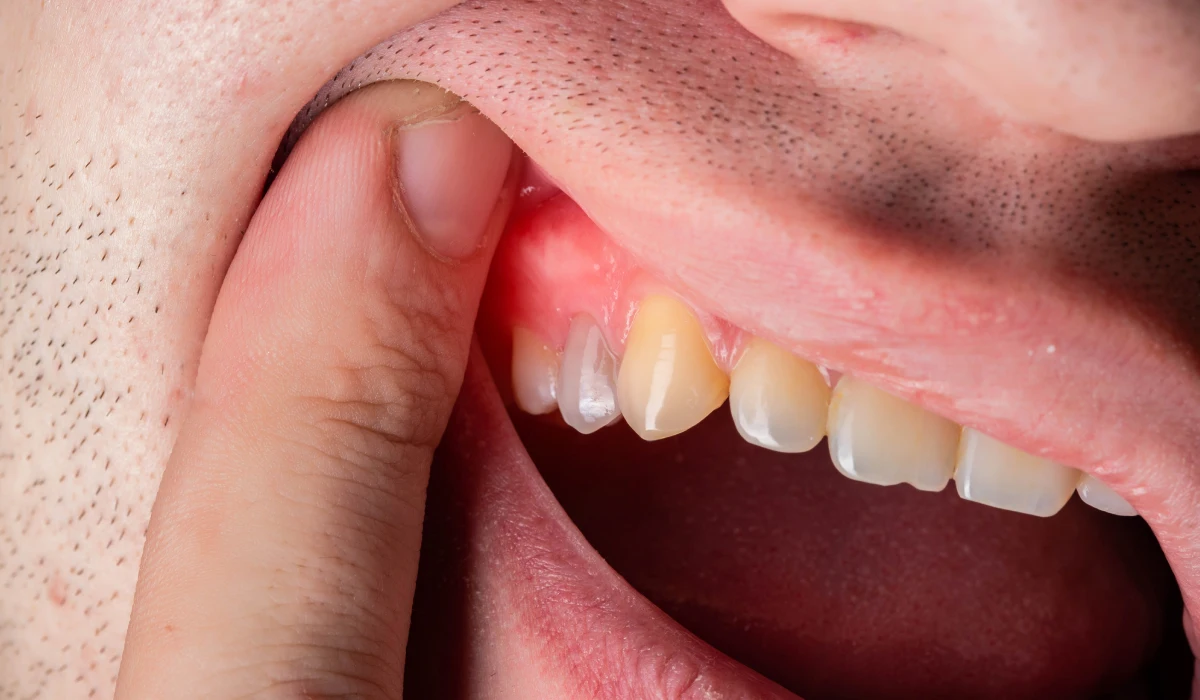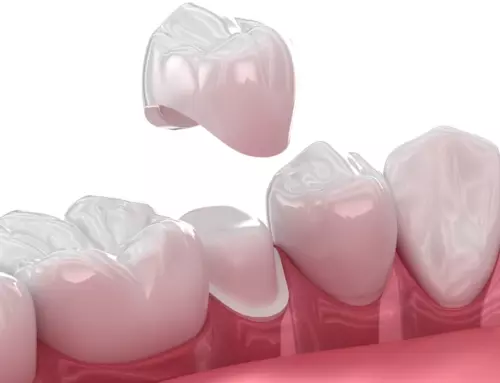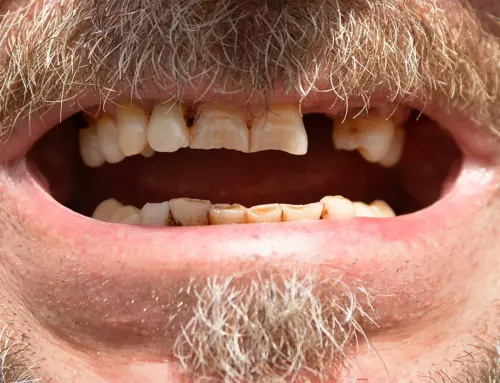Experiencing discomfort from a tooth abscess prompts the question, “How long does it take for a tooth abscess to heal?” Understanding the healing timeline is vital for managing symptoms and seeking appropriate treatment. A tooth abscess can cause pain and concern, but you can facilitate healing with proper care and intervention.
What is a tooth abscess?
A tooth abscess is a pocket of pus caused by a bacterial infection near the root of a tooth. It usually occurs because of a broken, chipped, or decayed tooth, allowing bacteria to enter and cause an infection. This infection leads to pockets of pus forming around the tooth’s root, which can be very painful. If left untreated, the infection may spread into the tooth and even into the jawbone. It’s different from a gum abscess because it starts inside the tooth or its root and can exit from the bottom of the root.
Common Symptoms of Tooth Abscess
Symptoms of an abscessed tooth include:
- Persistent pain in the affected tooth.
- A bitter taste in the mouth.
- Bad breath or halitosis.
- Overall feelings of discomfort, illness, or unease.
- Fever.
- Darkening of the affected tooth compared to surrounding teeth, indicating root changes.
- Pain while chewing, particularly on one side of the mouth.
- Sensitivity to hot or cold temperatures.
- Swelling in the gum around or near the affected tooth, resembling a pimple.
- Enlarged lymph nodes in the neck.
- Swelling in the upper or lower jaw near the affected tooth requires urgent medical attention.
To find out if you have an abscessed tooth, schedule an appointment with our dentist at Delight Dental Smiles in Hollywood, FL. We will carefully examine your mouth, gums, jaw, and teeth to identify any signs of infection.
Now, the question is, “How long does a tooth abscess take to heal?” Let us find out.
The recovery timeline for an abscessed tooth
After your dentist identifies the problem, treating an abscessed tooth involves two steps. First, your dentist will provide medical treatment to clear the infection completely. Secondly, you can manage symptoms at home during this time.
Dental Treatment
Treating an abscessed tooth in adults involves several steps to remove the infection source. Here’s what may happen:
- You may be prescribed oral antibiotics, usually taken for 1 to 2 weeks. Acute oral infections may require antibiotics for 3 to 7 days or longer.
- A deep cleaning may be performed to access the tooth and remove the infected material.
- If necessary, your dentist may make an incision to relieve pressure and drain the pus from the soft tissue.
- Following pus removal, an endodontist might perform a root canal to clean and seal the space.
- In cases of severe pulp damage, tooth extraction may be necessary.
These procedures may be spread out over a few months. Afterward, regular dental exams, typically every four to six months, are needed to monitor severe infections.
If a tooth is extracted or a root canal is performed, you’ll need to return for a dental implant or crown placement in a few months. Your dentist will monitor your progress and decide if further antibiotics or additional dental treatments are necessary.
Home Remedies
Home-based oral health remedies are not recommended for severe infections. However, incorporating these treatments alongside your dentist’s treatment plan can help manage tooth pain and alleviate side effects from medication.
After undergoing procedures like deep cleaning, root canal, tooth removal, or others, consult your dentist about potential home treatments, such as:
- Over-the-counter painkillers like ibuprofen or acetaminophen.
- Warm salt water rinses.
- Baking soda rinses.
- Applying a warm, moistened tea bag compress to reduce inflammation.
- Avoid sharp or hard foods that may puncture your gums or damage tooth enamel.
It’s essential to maintain long-term dental hygiene to reduce the risk of infection. Consider the following:
- Avoid foods and drinks that are excessively hot or cold.
- Reducing sugar consumption and limiting alcohol intake.
- Refraining from flossing the area of the abscess until treatment is complete.
- Using a soft toothbrush to minimize the risk of gum injury and infection.
Conclusion
Understanding the healing process of a tooth abscess is crucial for effective treatment and recovery. The duration of healing varies based on individual circumstances, the severity of the abscess, and the chosen treatment plan. While some abscesses may resolve within a few days with prompt dental care, others may take weeks to fully heal. Consulting a dentist is necessary for proper diagnosis, treatment, and guidance throughout the healing journey. Remember, prioritizing oral health and seeking timely dental intervention is key to a successful recovery from a tooth abscess.
Ready to learn more about how long a tooth abscess takes to heal? Contact Delight Dental Smiles in Hollywood, FL, to book an appointment and receive personalized dental care. Book your appointment online or call us at (954) 406-6897 today!
FAQ
How long does it take for a tooth abscess to heal without treatment?
Without treatment, a tooth abscess may not heal on its own and can lead to serious complications. Seeking prompt dental care is crucial for proper healing.
What factors affect the healing time of a tooth abscess?
The severity of the abscess, overall oral health, immune system function, and chosen treatment approach all influence the healing time of a tooth abscess.
Can antibiotics speed up the healing process of a tooth abscess?
Antibiotics can help control infection and reduce symptoms, but they may not speed up the healing process of a tooth abscess on their own. Dental intervention is often necessary for complete healing.







